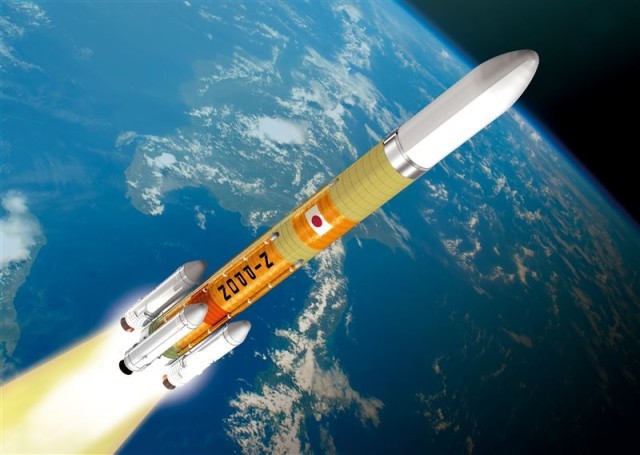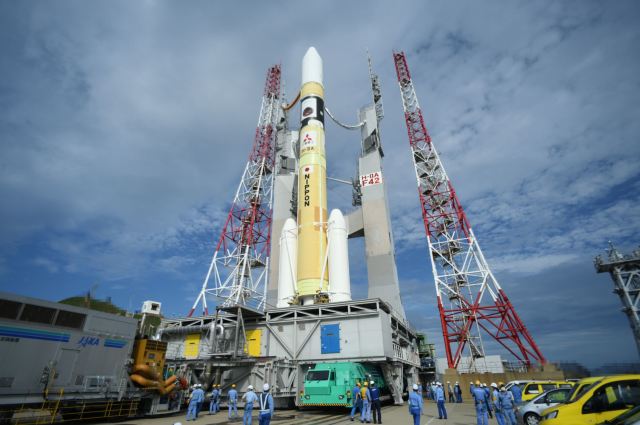Tokyo wants to get a launch vehicle with a returnable stage by 2030. It may be similar to the famous Falcon 9 from SpaceX.
Japan's plans to create its own reusable launch vehicle were reported by TASS with reference to the Yomiuri publication. The Japanese Ministry of Education, Culture, Sports, Science and Technology will present a draft carrier soon. Tests of the rocket want to be carried out around 2026. The first full launch of the carrier is planned to be carried out in 2030.
The use of technologies previously developed on the Falcon 9 heavy-class carrier can help in this. They want to land the first stage, as in the case of the SpaceX brainchild, on an offshore platform.
Japan has a well-developed rocket and space industry. At the same time, it is still difficult for it to compete with world leaders. Among the reasons — the high price of launches. One launch of the main Japanese carrier-H-IIA-costs ten billion yen (over $ 90 million). This is significantly more than other missiles with similar characteristics.
The H-IIA is a single-use medium-class launch vehicle belonging to the H-II family. The rocket was created by order of the Japanese Aerospace Research Agency (JAXA) engineers Mitsubishi Heavy Industries.
JAXA's immediate plans are related to the start of flight tests of the new H3 carrier, designed to replace the H-IIA and H-IIB. The main goal of the project is to reduce the cost of launching and servicing Japanese missiles so that they are competitive in the world market.
As previously noted, the cost of starting the H3 in comparison with the H-IIA indicators should be about half as low. It is expected that the rocket will receive a number of configurations that will cover a wide range of different orbits and payload sizes.

H3
Image source: spacenews
Even if the development and testing of H3 is successful, there is no guarantee that the goals will be achieved. Elon Musk's SpaceX (which will only strengthen its position in the market by the time the H3 is commissioned) is far from the only potential competitor.
Recently, the already internationally recognized private American company Rocket Lab announced the creation of a budget reusable medium-class carrier Neutron . Like the Falcon 9, it will have a returnable first stage. The carrier will be able to carry up to about eight tons of cargo to a low reference orbit.
Russia has less definite plans in this regard, although at different times the country has worked out various options for reusable missiles . Among the most discussed projects is "Krylo-SV". It involves the creation of a reusable cruise stage of a light-class rocket.

